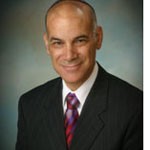By Rabbi Leonard Rosenthal

SAN DIEGO — Here is an amusing story based on this week’s parasha which speaks not only of rabbinic discretion and the limits of rabbinic authority, but the independent nature of Jews as well!
The book of D’varim (Deuteronomy) begins, “These are the words that Moses spoke to all Israel”” (Deut. 1:1)
The commentator Mincha Belulah wrote that in this verse we find one of the hidden secrets of the Torah: God blessed Moses with a miraculous voice. When Moses spoke, his words reverberated throughout the entire community. No matter where they were, everyone heard Moses and listened to his words.
Rabbi Shmuel Maslant was one of Jerusalem’s early rabbis, in the days when only the walled Old City existed and the New City was not even a dream.
One day a committee of civic leaders appeared before him with a request. Many of the city’s Jews walked outside of the Old City walls on Shabbat. Since there was no eruv (a special border erected around a large space to define it as a private, as opposed to public, domain), if people carried something with them they violated the prohibition against carrying from a private to a public domain on the Sabbath. They asked Rabbi Shmuel to decree that no Jew should leave the Old City on Shabbat in order to prevent this transgression.
Rabbi Shmuel demurred. “If I make such a decree,” he said. “The people won’t listen to me. At least now they sin in ignorance. If I make a decree and they ignore, they will sin intentionally. Intentional sin is worse than unintentional sin. It’s better to leave things the way they are!”
The community leaders were astounded. “Are you telling us Rabbi, that you are willing to allow the people to sin? We know that when you speak, the people listen.”
“That is true,” Rabbi Shmuel replied. “Thank God my words are accepted by the community. But do you know why? It is because I have never made a public decree unless I am sure that everyone will receive it with an open and full heart, and willingly obey it.”
“But if everyone listens to you, why don’t you make this new decree? Surely everyone will take your words to heart,” the elders said.
“Ah,” said Rabbi Shmuel. “If you think that when I speak everyone will automatically listen, you are asking for a miracle! The only time in Jewish history when a leader spoke and everyone heard and obeyed was when Moses spoke to the Children of Israel in the desert. But I am not Moses and so before I speak I have to make sure that everyone is willing to listen!” (Al HaTorah)
Rabbi Shmuel showed great wisdom and great restraint. He understood that he could only lead his people if they were willing to follow the path he set before them. He was careful not to make rules that they were not yet willing to follow.
Rabbi Shmuel respected his community and its limitations, and in turn the community respected him.
*
Rabbi Rosenthal is spiritual leader of Tifereth Israel Synagogue in San Diego. You may comment to leonard.rosenthal@sdjewishworld.com